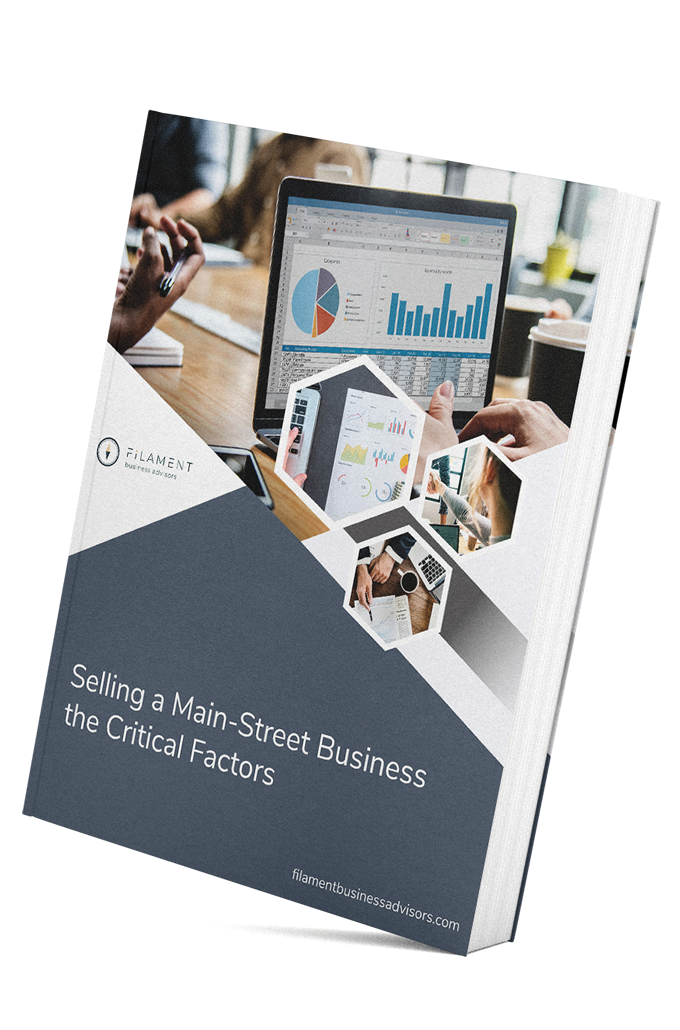
Improving Your Telework Habits

In her recent April 20th, 2020 Forbes article, “Three Keys to Engaged, Productive Telework Teams,” author Rajshree Agarwal, who is a professor of Strategy and Entrepreneurship, explored how to get the most out of telework. This highly timely article covers some very important territory for many companies dealing with the COVID-19 pandemic. Let’s explore Agarwal’s key points so that you can help your team get the most out of telework.
Agarwal notes that people may tend to shy away from sharing personal information and feelings while in the office. But via video conferencing, the story can be different. For this and other reasons, it is necessary for employers to keep in mind that the dynamic between you and your employees may be different when you use video conferencing. This will also often be the case when your employees speak with one another.
She prudently cautions business owners from taking a “business-as-usual” approach to the COVID-19 situation, as it can make them look both unnecessarily cold and out of touch with reality. On the flip side, however, it is also important to not dwell on the negative aspects of the pandemic. Offering some sense of normalcy during the COVID-19 pandemic is a smart move as well.
How you use telework and video conferencing is, in part, about developing the correct balance. On one hand, you’ll want to acknowledge that the situation is serious and must be addressed. But on the other hand, you don’t want to dwell on the pandemic. After all, not effectively handling the work at hand could undermine your business and cause other problems for both you and your employees.
It is in everyone’s best interest to be smart, safe, and acknowledge the bizarreness of the current situation while striving to achieve business goals. The keyword here is “balance.” Agarwal states that “The combination of empathy and purpose unifies individuals, allowing team members to channel their efforts towards shared objectives and values. This is the best antidote for anxiety.”
From Agarwal’s perspective, there are three keys to making telework effective: communication, socialization, and flexibility. First, there has to be good communication. For example, people can’t simply ignore one another’s emails because they are working virtually. She points out that real-time meetings via Zoom or Skype can eliminate some communication issues, but not all.
The second factor to consider is socialization. As Agarwal points out “Engaged, productive teams also take time to socialize.” Working from home alters the typical modes and methods of socialization, but virtual interactions can be used to help people form and develop their social networks.
In short, socialization doesn’t have to end once telework begins. Used judiciously, socializing, and the bonds it creates between co-workers can still continue.
Agarwal’s third key is flexibility. Flexibility is critical, as all team members must adjust to what, for some, may be a fairly radical restructuring of their day-to-day work experience. Those who haven’t worked virtually before may find adjusting to be quite a challenge. Management should strive to be more flexible during telework caused by the COVID-19 pandemic. Trying to maintain the same top-down approach could prove to be problematic.
It goes without saying that telework presents challenges. However, the challenges it represents are not insurmountable. There are benefits to teleworking, and teams can use it to generate solutions that they might have not reached in the typical work environment.
Copyright: Business Brokerage Press
The post Improving Your Telework Habits appeared first on Deal Studio – Automate, accelerate and elevate your deal making.

Don’t Fear Failure, Learn from It Instead

Failure is rarely fun. But it is also a key ingredient in success. While failure can be painful, there is no doubting the fact that the lessons that come from failure can be powerful teachers that provide life-long lessons and even life-trajectory altering results. Summed up another way, failure hurts. But on occasion, not failing could hurt more, especially in the long run.
In her Inc. article, “Why Tons of Failure Is the Key to Success, According to Seth Godin,” author Sonia Thompson, CEO of Thompson Media Group, points out that most people “avoid failure like the plague.” Instead, they spend their time trying to achieve perfection. In the process of adopting this approach, people miss all kinds of opportunities because they are afraid of damaging their egos. Embracing failure is a way to experience many “transformational benefits,” which would never be experienced without the lessons of failure.
Thompson points to the work of 18-time best-selling author Seth Godin who has written about how entrepreneurs who fail more often perform at a higher level. She quotes Godin as follows, “The rule is simple. The person who fails the most will win. If I fail more than you do, I will win. Because in order to keep failing, you’ve got to be good enough to keep playing.” Godin continues that failure imparts a gift of sorts in that it teaches us how to distinguish between a good idea and a bad idea.
As Thompson notes, research supports the notion that if you want a breakthrough idea, you will need to “produce an enormous volume of ideas.” Obviously, most ideas won’t work, but that isn’t the issue. The issue is to work your way through the bad ideas to get to the winners. Sure, it would be great to have nothing but winners. But life and reality don’t work that way. Failure should be seen more as a path forward than the end of the road.
Getting comfortable with failure, in Thompson’s view, is critically important. She believes entrepreneurs should take steps that make them more comfortable with failure, such as detaching oneself from the results.
It is vital to remember that you are not the work. In contrast, the work is part of an ongoing process. Getting good at something takes time, and there will be failures. For this reason, entrepreneurs simply must embrace a “growth mindset.” Don’t think of failure as failure, but instead as part of a learning process. There is no denying that this approach will make you calmer and that, in turn, may help you make better decisions.
There will be failure in life. There will be problems and there will be obstacles. Much will happen that you can’t predict, manage or control, such as the COVID-19 outbreak. The trick is to focus on what you can control and move forward without a paralyzing fear of failure. Because in the end, failure may be one of your best tools.
Copyright: Business Brokerage Press
The post Don’t Fear Failure, Learn from It Instead appeared first on Deal Studio – Automate, accelerate and elevate your deal making.

How to Connect During a Crisis

Small business owners are facing new challenges during this crisis. Communicating with customers requires more focus and depth than ever before. In Mat Zuker’s latest article for Forbes Magazine, he cites Jay Mandel who runs The Collective NYC, a marketing consulting team focusing on a customer’s experience, who underlines the importance of businesses to understand their mission statement and values in order to re-enforce marketing strategies.
Information is Crucial. Each customer purveying your business’s website needs to understand your hours of operation, any limitations to service and what is being done to ensure cleanliness. Providing this information establishes to your customer your seriousness of precautions which will be appreciated during this time.
If your financial situation allows, focus on your employees, donate to charities or offer discounted or free products. By marketing this information, your brand’s scope will bolster with the customer as well.
Utilizing the Customer’s Time. Most customers are adhering to social distancing guidelines put forth by their state and the federal government. Now, more than ever, it is important to exhibit to your customers how your brand can be utilized beyond your brick and mortar. Zuker cites how universities are beginning to offer free online classes and telecommunication companies are offering two months of free service to low-income families; King Arthur flour is promoting its library of comfort food recipes (yes, please!). Thinking beyond your storefront to put your service or product into your customer’s virtual hands is important.
Remember to entertain. By each passing day, customers are looking for new stimulation to help the time go by at home. Movie companies are making the best of the situation by sending theatrical releases to online streaming services. We don’t think it is necessary to always make your customers laugh, but it might be within your branding to aim for content geared towards warmth, humanity and empathy.
The metric for engaging your customers is changing; moving beyond views and shares to quality feedback or social impact on your community. Do not bite off more than you can chew. Cited in Zuker’s article, Social Media Today warns of virtue signaling; meaning declaring a set of values, but not following through on the actual deeds.
Also, this is a fantastic opportunity to consider your marketing strategies for when this crisis ends. What will your business look like once you are able to open the doors? How are you able to stay relevant with your competitors? These are all questions needing answers, but today we must do our best to accomplish what is in front of us.
Read Mat Zucker’s full article here: https://www.forbes.com/sites/matzucker/2020/04/01/content-in-a-crisiswhat-brands-can-deliver/
Copyright: Business Brokerage Press, Inc.
The post How to Connect During a Crisis appeared first on Deal Studio – Automate, accelerate and elevate your deal making.

IBBA and M&A Source Market Pulse Survey Report Predicts Major Changes

The IBBA and M&A Source Market Pulse Survey Report for the fourth quarter of 2018 has a range of interesting insights. The survey’s purpose is to provide an “accurate understanding of market conditions for businesses being sold in Main Street (values $0-$2MM) and the Lower Middle Market (values $2MM-$50MM). This national survey was designed as a tool for business owners and their advisors and has the support of both the Pepperdine Private Capital Markets Projects and the Pepperdine Graziadio Business School.
One of the most striking facts to leap out of the report is the fact that a full one-third of advisors fully expect the strong market to end this year. Overall, advisors are not optimistic that the current climate will continue through 2020. In fact, advisors are encouraging sellers to consider placing their businesses on the market now, while the market is still strong. This is according to Craig Everett, PhD and Assistant Professor of Finance and Director of the Pepperdine Private Capital Markets Project.
One fact from the report that could be overlooked is that only a mere 8% of advisors expect the current climate to last for 48 months or more. Additionally, only 9% believe that the current climate will last between 24 to 48 months. Perhaps most striking of all is the fact that 60% of advisors feel that the current climate will end within the next two years.
Business owners who are considering selling should be advised that almost two-thirds of advisors now feel that there will be a significant shift in the next two years. Considering that it can take a year or more to sell a business, business owners would be wise to consider this important fact.
The report sites Neal Isaacs, Owner of VR Business Brokers of the Triangle who states, “Deals are taking longer in due diligence as buyers work hard to validate their investment and make sure that what they’re buying is worth the premium price today’s sellers are commanding.”
So, is now the time to sell? Many experts feel that it is possible to lose a sizable amount of value if one waits too long to sell. Even just a few months can make a huge difference in terms of perceived value and the ultimate sales price. Working with a proven business broker is a key way to ensure that you are selling at the right time and secure the best possible price.

5 M&A Myths and How to Deal with Them

Where your money is concerned, myths can do damage. A recent Divestopedia article from Tammie Miller entitled, Crazy M&A Myths You Need to Stop Believing Now, Miller explores 5 big M&A myths that can get you in trouble. Miller points out that many of these myths are believed by CEOs, but that they have zero basis in reality.
Myth 1
The first major myth Miller explores is the idea that the “negotiating is over once you sign the LOI.” The letter of intention is, of course, important. However, this is by no means the end of the negotiations and it is potentially dangerous to think otherwise. The negotiations are not concluded until there is a purchasing agreement in place. As Miller points out, there is a great deal that can go wrong during the due diligence process. For this reason, it is important to not see the LOI as the “end of the road.”
Myth 2
Another myth that Miller wants you to be aware of is that you don’t have to take a company’s debt as part of the purchase price. Many business brokers, such as Miller, recommend that buyers don’t take seller paper.
Myth 3
A third myth that Miller explorers is a particularly dangerous one. The idea that everyone who makes an offer has the money to follow through is, unfortunately, simply not true. Oftentimes, people will make offers without securing the money to actually buy the business. No doubt, this wastes everyone’s time. As the business owner, it can derail your progress. If you are not careful, it could actually prevent you from finding a qualified buyer.
Myth 4
Another myth is built around the notion that sellers don’t need a deal team in order to sell their business. Again, this is another myth that has no real foundation in reality. While it may be possible to sell your business without the assistance of an experienced M&A attorney or business broker, the odds are excellent that doing so will come at a price. According to Miller, those working with an investment banker or business broker can expect, on average, 20% more transaction value!
Additionally, there are other dangers in not having a deal team in place. A business broker can handle many of the time-consuming aspects of selling a business, so that you can keep running your business. It is not uncommon for business owners to get stretched too thin while trying to both run and sell a business and this can ultimately harm its value.
Myth 5
Miller’s final myth to consider is that you must sell your entire business. It is true that most buyers will want to buy 100% of a business, but a minority ownership position is still an option. There are many reasons to consider selling a minority stake, so don’t assume that selling your business is an “all or nothing” affair.
Ultimately, Miller lays out an exceptional case for the importance of working with business brokers when selling or buying a business. Business brokers can help you avoid myths. In the end, they know the lay of the land.

Ask Filament
Dear Jason,
I’m the head of marketing for a regional mortgage company, recently hired to lead marketing strategy for the entire brokerage. Ironically, despite having eight plus months under my belt, I have yet to dig myself out enough to even think about a cohesive marketing plan, let alone take steps to organize the drafting of one.
Although it’s true that we have a small department relative to the number of employees we support, I know that my time is not best spent putting out fires and doing the marketing work. Especially with the pundits predicting an economic adjustment within the next few years, taking all of that on myself will likely catch up with me.
So here’s my question: Given the limited resources I have at my disposal, how do I get ahead of my department’s workload and develop a plan to extricate myself from the day to day execution of the marketing work of my company?
Sincerely, The Amazing Mrs. Mazel the Marketer
Dear Mrs. Mazel,
Your plight is, of course, not uncommon. Most of us learned in elementary school that proper planning prevents poor performance and, applied to business, that means a business plan which sets the tone for strategic and marketing activities is vital for any business that one day wants to grow up into a company. That said, a surprising number of “companies” do not have any formal planning process in place, but instead rely on top line growth to hide flaws in bottom line numbers caused by operational inefficiency.
Two problems are actually at play here. One, you don’t have a strategy to make sure your marketing efforts are aligned with the company’s goals and two, you don’t have a way to measure the effectiveness of your measures or the efficiency of your department. If you’re working on something that an employee can be paid to do at lower rate than you earn, then your department is working inefficiently. Your company compensates you as a Marketing Director for a good reason- your ability to lead the department and leverage the talent of your direct reports is a more highly valued role than someone who specializes in graphic art, social media or digital advertising. Thus, if you’re not leading your department through proper strategic planning and execution, leveraging the resources you have as opposed to doing the work yourself, you are not doing what your company really needs and you are right to be concerned about any future softness in the mortgage market.
But, back to your initial question of how to find the time to do what you know needs to be done.
- Learn to push back and say “no.”
- Let them fail
- Work longer hours and more efficiently
Push Back/Say No
From the description of your issues, it seems clear that you receive a steady stream of requests for your products. Do you have a specific menu of options you provide your employees, or is there a lot of custom work? If you’re reinventing the wheel with each request it’s a huge time suck, as opposed to working off of established templates that can be more easily streamlined and taught to others. If people are demanding complicated solutions that you aren’t sure are the right way to go anyway, don’t be afraid to have a discussion- after all, you’re the marketing pro, not them. And if the idea is a good one and you’re just busy, establish a deadline that’s achievable without hobbling your workflow. When time permits, establish a formal menu of services that is easily replicable and train your people to handle those requests.
Let Them Fail
 Don’t be a “helicopter boss.” If you’ve trained your people correctly and they possess good work ethic, then trust them to do their jobs. They may not always do things exactly as you would, and will occasionally make mistakes, but that’s a justified trade off for a more streamlined process. Plus, those mistakes serve as teachable moments and your team will be better for having had the experience of failure. Being freed of the burden of micromanagement allows you to focus on higher level activities.
Don’t be a “helicopter boss.” If you’ve trained your people correctly and they possess good work ethic, then trust them to do their jobs. They may not always do things exactly as you would, and will occasionally make mistakes, but that’s a justified trade off for a more streamlined process. Plus, those mistakes serve as teachable moments and your team will be better for having had the experience of failure. Being freed of the burden of micromanagement allows you to focus on higher level activities.
Work Longer Hours and More Efficiently
These are two separate strategies, but putting in the hours when needed really has no substitute if you want to continue to move up the ladder. Certainly there are plenty of C-Suite executives that got there through who they know, where they’re from, and what school they went to, but most of us have to do things the hard way, which means hard work, smart work or efficient work… choose any two.
Conclusion
There is no magical formula for success, Mrs. Mazel, and no one at your company is likely to mentor you through these challenges. This is all on you, so step up, lean in, roll up your sleeves, and provide results that will wow. You may just end up saving that company when the market correction fully rears its head, paving the way for a C-Suite office yourself.
Read More
One Size Doesn’t Fit All in Sales
Although customers purchase essentially the same products or services from a particular business, these customers all have different personalities and want to be made to feel unique, valued and appreciated. As such, the talented salesperson is a chameleon of sorts, able to adapt their approach to the personality of their client or prospect.
 Some customers might want to discuss the product or service in addition to their daughter’s graduation party and how well their Aunt Ida’s strawberries are coming in this year. Other customers might strictly be interested in their purchase, inquiry, or problem and, basically, want the transaction completed as soon as possible with as little interaction as possible with a salesperson (move this person to an e-commerce channel ASAP!). Still others seemingly want to chit chat all day, only circling around to the business at hand, often abruptly, at the very end of the conversation (do NOT shift them to en e-commerce channel if you want to keep them as a customer!).
Some customers might want to discuss the product or service in addition to their daughter’s graduation party and how well their Aunt Ida’s strawberries are coming in this year. Other customers might strictly be interested in their purchase, inquiry, or problem and, basically, want the transaction completed as soon as possible with as little interaction as possible with a salesperson (move this person to an e-commerce channel ASAP!). Still others seemingly want to chit chat all day, only circling around to the business at hand, often abruptly, at the very end of the conversation (do NOT shift them to en e-commerce channel if you want to keep them as a customer!).
Adapt
So, what if you’re not a natural salesperson and the idea of changing your interpersonal behaviors generates a rumbling feeling of loathing in your soul? To you I say, congratulations on knowing who you are, but if you want to put food on your table and a roof over your head, realize your business is not about you, it’s about your customer. If you’re the business owner, you must develop the best customer-business relationship possible if you hope to grow your business to the point of being able to hire an outside salesperson.
Record and listen to phone conversations between employees and customers to generate ideas on how to improve the communication and service processes. Listen to your own conversations and pay attention to the conversational dynamics. Partner new employees with more experienced employees to achieve the same goal.
Changing Personality
Getting to know a particular customer does not necessarily mean that the customer will always react the same way with every employee. Everyone’s personality shifts day to day, and even though an employee might have dealt with a particular customer one way in the past does not necessarily mean that the customer’s personality will be the same during the next interaction. Someone that’s normally talkative might only want the “facts” if they’re in a rush and the ‘strictly business customer’ might be ready for more interaction than normal.
Role-Playing
As with almost anything, practice makes perfect. Businesses spend time and money training employees on policies, procedures, new product or service updates, and a variety of other types of training. Frequently, one of the most important types of training – interacting successfully with customers – is forgotten.
 In your own experience, how often do you call a business and truly feel appreciated, valued and unique? Have you ever?
In your own experience, how often do you call a business and truly feel appreciated, valued and unique? Have you ever?
Role-playing with customer personalities is important for a business’ success and growth. A business can have the best product or service but will still fall flat if they don’t recognize the importance of adapting to personality types.. Role-playing and practice in a group setting can help alleviate this problem and establish the foundation for improved customer relationships for employees who are not naturally good at reading and adjusting communication styles.
Work Those Personalities
In a competitive business environment, almost anything that can be done to get an edge on the competition is worth the effort. When employees relate to customers and customers, in turn, relate to a business and its employees, the satisfaction level rises dramatically, increasing the chances of repeat business- it’s much more cost effective than attracting new customers!
Read More
10 Questions Everyone Should Ask Before Signing on the Dotted Line

Before buying any business, a seller must ask questions, lots of questions. If there is ever a time where one should not be shy, it is when buying a business. In a recent article from Entrepreneur magazine entitled, “10 Questions You Must Ask Before Buying a Business”, author Jan Porter explores 10 of the single most important questions prospective buyers should be asking before signing on the dotted line. She points out to remember that “there are no stupid questions.”
The first question highlighted in this article is “What are your biggest challenges right now?” The fact is this is one of the single most prudent questions one could ask. If you want to reduce potential surprises, then ask this question.
“What would you have done differently?” is another question that can lead to great insights. Every business owner should be an expert regarding his or her own business. It only makes sense to tap into that expertise when one has the opportunity. The answers to this question may also illuminate areas of potential growth.
How a seller arrives at his or her asking price can reveal a great deal. Having to defend and outline why a business is worth a given price is a great way to determine whether or not the asking price is fair. In other words, a seller should be able to clearly defend the financials.
Porter’s fourth question is, “If you can’t sell, what will you do instead?” The answer to this question can give you insight into just how much bargaining power you may have.
A business’ financials couldn’t be any more important and will play a key role during due diligence. The question, “How will you document the financials of the business?” is key and should be asked and answered very early in the process. A clear paper trail is essential.
Buying a business isn’t all about the business or its owner. At first glance, this may sound like a strange statement, but the simple fact is that a business has to be a good fit for its buyer. That is why, Porter’s recommended question, “What skills or qualities do I need to run this business effectively?” couldn’t be any more important. A prospective buyer must be a good fit for a business or otherwise failure could result.
Now, here is a big question: “Do you have any past, pending or potential lawsuits?” Knowing whether or not you could be buying future headaches is clearly of enormous importance.
Porter believes that other key questions include: “How well documented are the procedures of the business?” and “How much does your business depend on a key customer or vendor?” as well as “What will employees do after the sale?”
When it comes to buying a business, questions are your friend. The more questions you ask, the more information you’ll have. The author quotes an experienced business owner who noted, “The more questions you ask, the less risk there will be.”
Business brokers are experts at knowing what kinds of questions to ask and when to ask them. This will help you obtain the right information so that you can ultimately make the best possible decision.

A Step by Step Overview of the First Time Buyer Process
A recent article on Businessbroker.net entitled, First Time Buyer Processes by business broker Pat Jones explores the process of buying a business in a precise step-by-step fashion. Jones notes that there are many reasons that people buy businesses including the desire to be one’s own boss. However, he is also quick to point out that buyers should refrain from buying a business that they simply don’t like. In the quest for profits, many prospective owners may opt to do this, but it could ultimately lead to failure.
Step One – Information Gathering
For Jones, there are seven steps in the business buying process. At the top of the list is to gather information on businesses so that one has an idea of what kind of businesses are appealing.
Step Two – Your Broker
The second key step is to begin working with a business broker. This point makes tremendous sense; after all, those new to the business buying process will benefit greatly from working with a guide with so much experience. Business brokers can gain access to information that prospective business owners simply cannot.
Step Three – Confidentiality and Questions
The third step in the process is to sign a confidentiality agreement so that you can learn more about a business that you find interesting. Once you have the businesses marketing package, you’ll want to have your broker schedule an appointment with the seller. It is vitally important that you prepare a list of questions on a range of topics. There is much more to buying a business than the final price tag. By asking the right questions, you’ll be able to learn more about the business and its long-term potential.
Step Four – Evaluation
In the fourth step of the business buying process, you’ll want to evaluate all the information that you have received from the seller. Once again, a business broker can be simply invaluable, thanks to years of hands-on experience, he or she will know how to evaluate a seller’s information.
Step Five – The Decision
In the fifth step, you’ll need to decide whether or not you are making an offer. If you are making an offer, you will, of course, want it to be written and include contingencies.
If your offer is accepted, then the process of due diligence begins. During due diligence, you and your business broker will look at everything from financial statements to tax returns. You will evaluate the company’s assets. Again business brokers are experts at the due diligence process.
Buying a business is an enormous commitment. Making certain that you’ve selected the right business for you is one of the most critical decisions of your life. Having as much competent and experienced help as possible is of paramount importance.

I’m Stressed Out Jerry!
The American Psychological Association conducts a yearly survey of Americans to determine the relative levels of stress we feel. In 2018 a record was set with 90% of respondents reporting elevated levels of stress on a daily basis. Perhaps even worse, almost half of respondents reported that their levels of stress were leading to depression, anxiety and a lack of motivation. We, as Americans, are stressed out, and that’s just the tip of the iceberg. Stress is also believed to contribute to physical health risk factors like high blood pressure and heart disease, perhaps leading to the markedly shorter and more medically assisted lifespans we have.
So, why do Americans, who have the highest standard of living in the first world and therefore the whole world, feel so besieged?
Under Pressure
The answer to this question is, of course, different for different people, so I’m going to focus on the population that I know best – small business owners. If you’ve started, purchased, or otherwise run a small business, you probably have that entrepreneurial spring inside of you that, once freed, sent you on a trajectory of self-determination leading to where you are now. But that entrepreneurial spring is a funny dynamo… once you let it go, it can be hard to predict where it will bounce you, and before you know it you have employees, supply chains, expensive assets, the debt that comes with them, etc. And with those things, despite the joy and rewards of running a successful business, also come immense pressures and obligations.
Chief Cook and Bottle Washer
Compounding the mounting pressure of being a business owner is the phenomenon that occurs when you find yourself wearing more and more hats (CEO, CFO, COO, Marketing Director, HR Director, IT Manager). But even if you could learn to be a CEO, a sales director, an accountant, a CMO, an operations/logistics specialist, an HR expert and a computer whiz, would you enjoy filling all of those roles? Are you the best person for each of those jobs? And if not, might you be doing your company a disservice by continuing to fill them on your own?
Whatever your role, your time should be spent focused on the activities you both enjoy and excel at to keep your energy at its peak and your initial reason for wanting to own your own business in tact. For most business owners, this means providing strategic direction and inspirational leadership for your company, which can be achieved either on the technical or sales side of the C-Suite. If you’re the business owner and you’re spending more time changing the tires than turning the wheel, you’re not in the right seat on your bus.
Working On Your Business, Not In Your Business
When we spend extended periods of time performing duties we don’t enjoy, we drain our energy. When we spend our time doing what we like, we replenish our energy. You might have experienced this if you’re the type of business owner who prefers social activities, like sales and networking, but is forced to work on bank statement reconciliations, payroll, hiring or contracts. Or maybe you love the technical side of running a business but loathe networking.
Conclusion
 If you’re like most small knowledgeable and experienced business owners, it’s probable that you could close your doors tomorrow and make more money working fewer hours for one of your larger competitors. But that’s missing the point, isn’t it? The point, for most owners, is increasing quality of life for you and your family, both in this generation and possibly thereafter.
If you’re like most small knowledgeable and experienced business owners, it’s probable that you could close your doors tomorrow and make more money working fewer hours for one of your larger competitors. But that’s missing the point, isn’t it? The point, for most owners, is increasing quality of life for you and your family, both in this generation and possibly thereafter.
In that spirit, I challenge you to do some introspection on what you enjoy most and least about owning a business. And then, open your mind to letting someone else do the rest – whether that be an in-house employee, a firm specializing in the service you need like a CPA/bookkeeping firm or an HR company, or a fractional business consultancy who can devote a team to your company on a part time basis. Often the second two of these options is less expensive and time intensive than hiring your own employee(s), and gives you more flexibility without the additional management responsibilities.
Whatever you choose to do, stop putting so much pressure on yourself and remember why you originally pursued the dream of owning your own business. Then make a plan to get back there.
Read More
